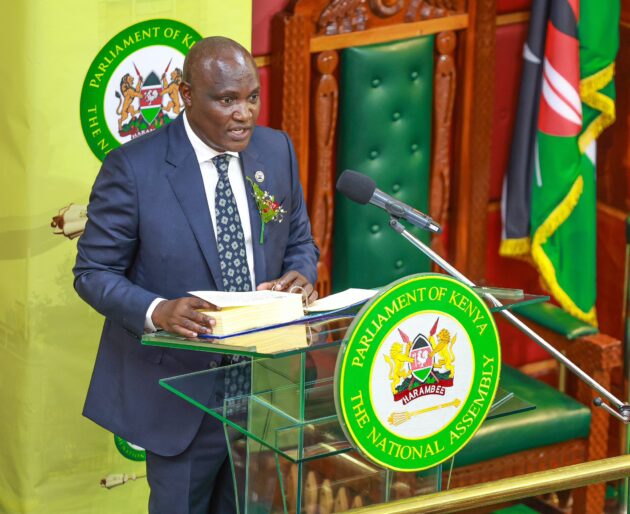
Education Gets Lion’s Share in 2024/25 Budget as Agriculture Faces Major Cuts » Capital News
NAIROBI, Kenya, June 12 – The education sector has emerged as the biggest winner in the 2024/2025 national budget, with a proposed allocation of Sh702.7 billion, while the agriculture sector suffered a significant budget cut.
Presenting the budget estimates in the National Assembly, Treasury Cabinet Secretary John Mbadi described education as a critical sector deserving greater investment.
“I have proposed a total allocation of Sh702.7 billion to the Education Sector. This includes Sh387.2 billion for the Teachers Service Commission (TSC), with Sh7.2 billion for recruitment of intern teachers and Sh980 million for capacity building under the Competency-Based Curriculum,” said Mbadi.
The proposal also allocates Sh7 billion for Free Primary Education, Sh28.9 billion for Junior Secondary School Capitation, and Sh51.9 billion for Free Day Secondary Education.
Additional funding includes Sh5.9 billion for national examinations, Sh3 billion for school feeding programmes, Sh4 billion for Technical and Vocational Education and Training (TVET) projects, and Sh1.7 billion for school infrastructure.
To support equity and quality, the budget provides Sh13.3 billion for primary education equity, Sh2.3 billion for secondary school improvement, and Sh993 million for science, research, and innovation.
Higher education support includes Sh41.5 billion through HELB loans, Sh16.9 billion for university scholarships, and Sh7.7 billion for TVET scholarships.
Mbadi said the investments reflect the government’s constitutional duty to guarantee every learner the right to basic education.
In contrast, the agriculture sector saw a 20.1 percent budget cut, receiving Sh47.6 billion, down from Sh60.4 billion in the previous fiscal year.
The allocation includes Sh8 billion for fertiliser subsidies, Sh10.2 billion for agricultural value chains, Sh800 million for small-scale irrigation and value addition, and Sh1.2 billion for food security and crop diversification. Another Sh5.8 billion has been allocated to food systems resilience.
Support for livestock includes Sh2.3 billion for pastoral de-risking, Sh1.6 billion for livestock commercialisation, Sh280 million for livestock value chains, and Sh340 million for the Leather Industrial Park at Kenanie.